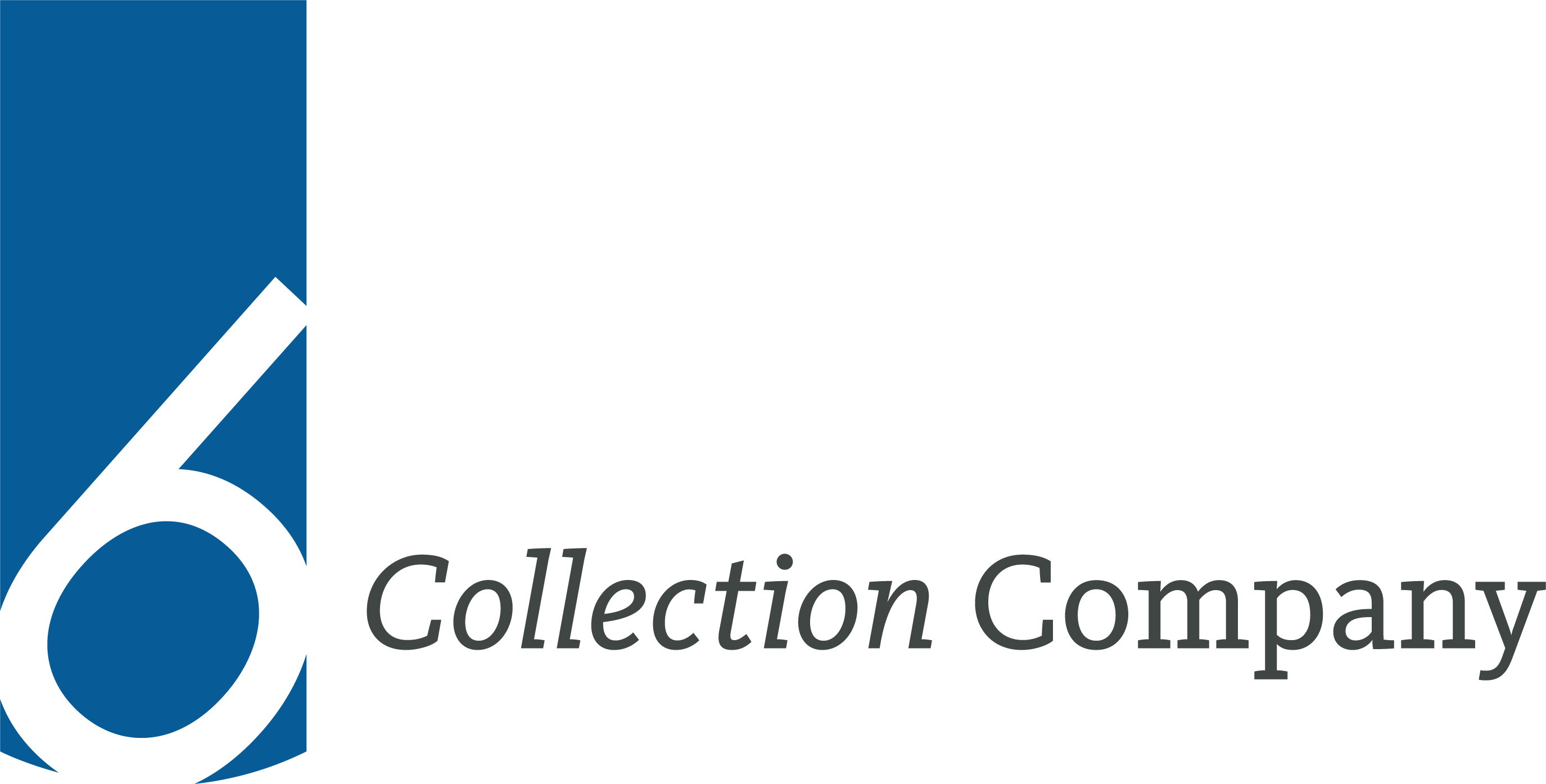Debt Collection in the Czech Republic: recovery of unpaid invoices
Whether you’re waiting for compensation, have sent an invoice that is still not paid, or are owed salary by a Czech employer, an outstanding debt abroad can cause you a lot of headaches.
Fortunately, our international debt collection specialists know exactly how to enforce payment of your outstanding debts in the Czech Republic as quickly and efficiently as possible. In doing so, we collaborate with a high-quality network of local lawyers, attorneys, and bailiffs.
- Nationwide coverage in the Czech Republic
- One dedicated English speaking contact
- Proven track record
- Tailor-made services for each case
- Expert advice and a transparent process
- 24/7 online access
Specialized in debt collection in the Czech Republic
Collecting your money on your own in the Czech Republic can take a lot of time and energy. After all, you are dealing with different trade customs and different laws and regulations. Moreover, you probably don’t speak Czech and you might not have time to travel to the Czech Republic.
Fortunately, you can hire Collection Company for debt collection in the Czech Republic. We have years of experience in collecting international claims and we work together with the best local specialists, such as lawyers and bailiffs. They know all about the Czech legal system and how to collect the debt as quickly and efficiently as possible.
Are you dealing with a defaulter in the Czech Republic? Take action and make use of our international debt collection services. Submit your details and one of our debt collection specialists will contact you.
Submit your debt collection case
Do you have a debt collection case in the Czech Republic? Please leave your contact information and one of our specialists will get in touch with you as soon as possible to discuss your case.

Why choose Collection Company for your debt recovery in the Czech Republic?
- Global coverage
- One dedicated English speaking contact
- Experienced debt collection specialists with knowledge of Czech legislation
- Broad network with local lawyers and bailiffs
- Seamless connection from extrajudicial to judicial action
- Effective local approach
- 24/7 tracking through your own Online Cockpit
How does debt collection work in the Czech Republic?
When your Czech debtor fails to pay an invoice, you can recover the debt in two different ways: through extrajudicial or judicial debt collection. At Collection Company, these processes seamlessly transition into one another.
Extrajudicial debt collection encompasses all efforts to collect the invoice before resorting to a judicial procedure. We aim to collect the invoice without involving the court.
If these efforts are insufficient to secure payment, we can engage our Czech lawyers and attorneys to initiate a legal procedure. The Czech court will then assess the situation and issue a payment order if your claim is deemed valid.
- Upload your invoice online
- We'll start your case
- We'll start with the debt collection process
- Together we decide the best strategy for collecting your debts
- Monitor the status of your case 24/7
- Any questions? Your personal accountmanager will answer them all!
- Your invoice is paid
Out-of-court debt collection procedure
Generally, we first try to collect your claim without involving the court. In most cases, sending a payment reminder to the debtor or making telephone contact with your debtor is sufficient to get the invoice paid. Often, an amicable debt collection is therefore the most efficient way to collect your claim and this way you can maintain a good relationship with your customer.
During the amicable debt collection procedure, if necessary, we contact your debtor 16 times (within a period of three weeks). We gradually increase the pressure on your debtor.
Eventually, we give your debtor a final warning: if the invoice is not paid within the specified timeframe, we take legal action. This incurs significant costs for your debtor, causing most defaulters to settle the outstanding amount.
If not, the next step will be (in close consultation with you) to initiate court proceedings.
Legal procedure
If a claim under 1,000,000 Czech Crowns (CZK) is not disputed by your debtor, it is possible to enforce a judicial payment order through a fast-track procedure (platební rozkaz).
This expedited procedure can be completed electronically upon the request of the creditor. We submit your claim and the evidence online, and no hearings are scheduled. If the court finds your claim justified based on the submitted documents, a payment order is immediately issued.
Your debtor then has 15 days to object to the payment order. Only if your debtor does so, the payment order is withdrawn, and a hearing is scheduled in court where both parties can substantiate their positions with evidence. Witnesses can also be summoned. The judge will then make a new decision.
If your debtor does not object to the payment order, or if the court reissues the payment order after the hearing, an enforcement officer can execute it, for example, by seizing your debtor’s income or assets.
Disputed claims
If there is a dispute about a claim a regular civil procedure at the District Court in the place your debtor resides will follow. To initiate this procedure, your debtor must have received a final reminder, calling for payment of the invoice within 7 days.
Both parties can then submit evidence, and a hearing will be scheduled to allow both parties to further explain their position. Subsequently, the judge will make a ruling. This judgment will have an enforceable status, meaning that a bailiff can seize assets.
Debt collection costs
For both the fast-track procedure and the regular civil procedure, fixed debt collection costs (including court fees) apply. A fast-track procedure costs 4 percent of the total claim. A civil procedure costs 5 percent of the total claim. In addition, a fixed fee of 300 CZK is charged for each step in the process.
The court usually assigns these costs (plus your expenses for legal assistance) mainly to the losing party.
Obtaining a European Payment Order
In some cases, it is not even necessary to file a lawsuit in the Czech Republic. To facilitate the collection of undisputed cross-border claims within the EU, there is the possibility to obtain a European Payment Order.
Through a simple and accelerated procedure, such a payment order can be acquired. The only thing we need to do is complete and submit a few (standard) forms to the designated court in your country. The judge will issue an electronic payment order based on this and have it served on your debtor in the Czech Republic.
Your debtor then has 30 days to object to the payment order. If they fail to do so, the payment order becomes immediately enforceable in the Czech Republic, without the involvement of a local judge. With the European Payment Order, we can immediately engage a Czech bailiff to collect the claim.
Please note that European Payment Orders are only available for undisputed cross-border claims. If the debtor contests the claim a European Payment Order is not possible. Want to know if your claim qualifies for a European Payment Order? Our specialists are happy to investigate for you.
European Small Claims Procedure
It is also possible to follow a European Small Claims Procedure (ESCP) for small cross-border claims (under 5,000 euros). The advantage of this procedure is that it is conducted through the court in the country you reside and that the process is fully digital.
Both parties can submit their evidence digitally, and hearings are organized via a video call. At the end of the procedure, the judge will make a ruling. If the judge grants your claim, we can immediately engage a bailiff in the Czech Republic to enforce the judgment.
Enforcement proceedings
Many debtors still refuse to pay after receiving a payment order or judgment from the court. In that case, we can initiate enforcement proceedings. We hire a Czech bailiff for this purpose. Bailiffs are authorized to seize assets of your debtor based on the payment order or a judgment from the court.
Bailiff is a regulated profession in the Czech Republic. They must be registered with the Chamber of Bailiffs of the Czech Republic (Exekutorská komora České republiky). Bailiffs in the Czech Republic are not limited to a specific region or district. An official bailiff can execute (carry out) judicial orders throughout the country.
Once we transfer the case to a bailiff, they will start identifying the assets of your defaulter. Subsequently, they will request permission from the judge in the defaulter’s district (within 15 days) to seize assets.
In principle, the bailiff can seize all types of assets of your debtor. This can include income or a bank account, as well as movable or immovable property. The bailiff can then sell the seized items. The proceeds from the sale are used to pay off the debt, the bailiff’s fees, and other collection costs.
Preliminary measures
During the legal procedure, we can ask the judge to take certain precautionary measures. These may include temporarily securing assets of your debtor by means of an attachment.
If we don’t do this, your defaulter has the opportunity to hide or transfer their assets before the judge makes a decision, leaving you as a creditor with nothing to collect.
Such precautionary measures (předběžná opatření) are called interim attachment. Interim measures are the best way to ensure that the judge’s verdict can actually be enforced.
In the Czech Republic it is only possible to impose an interim attachment if an official document (such as a payment order) exists, but it is not yet enforceable. This is the case, for example, when a payment order has been issued in a fast-track procedure, but your debtor objects to it.
To impose an interim attachment, we must file a petition with the court where the legal procedure will take place. We must demonstrate that our claim is likely to succeed and substantiate that (for example, due to the behavior of your debtor) there is a risk that a possible judicial decision cannot be enforced if no protective measures are taken.
The judge will then grant permission for the interim attachment. The attached assets are secured until the judicial decision can actually be enforced.
Depending on the value of the assets subject to the attachment, the creditor must pay a deposit of 10,000 or 50,000 CZK. This deposit is intended to compensate for any damage that may arise from the interim attachment if the court ultimately rejects the claim.
Insolvency proceedings against the defaulter
If your debtor stubbornly refuses to pay, we have a strong leverage tool: petitioning for bankruptcy.
In the Czech Republic, it is possible to file for bankruptcy (konkurs) of your debtor when:
- They have multiple creditors.
- They have outstanding invoices for which the payment deadline has passed more than 30 days.
- They are unable to meet their payment obligations.
A debtor is presumed unable to meet their payment obligations if they have suspended a significant portion of their financial obligations.
Once we petition for bankruptcy, it will be announced in the insolvency register of the Ministry of Justice (Ministerstvo spravedlnosti). At that point, other creditors can come forward. If necessary, we will actively seek other creditors who can support the bankruptcy application.
If a bankruptcy petition is submitted, the court will assess whether reorganization (restructuring or debt relief) is possible. If not, your debtor will be declared bankrupt. The court will then appoint a trustee (insolvenčního správce) to assess the debtor’s assets and attempt to pay the creditors.
Advice about your case?
Submit your contact details and one of our debt collection specialists will contact you immediately!

Legal areas of debt collection Czech Republic
At Collection Company, we assist creditors with various types of claims. We can help you collect unpaid invoices, damage claims, and other overdue payments.
We provide debt collection services in the following legal areas:
- Construction law
- Rental and leasing
- Buying and selling
- Labor law
- Agency agreement
- Transport
- Damages and wrongful acts
We work directly for clients as well as for intermediaries such as lawyers and accountants.
Anything else we can help you with in the Czech Republic?
- Reliable advice on contracts and terms
- Credit information on companies in the Czech Republic
- Disputes regarding retention of title and right of reclamation
- Mediation in reaching private agreements and settlements
File your claim immediately
Submit your claim directly to us via the debt collection registration form. Would you prefer to first consult with one of our debt collection specialists? Leave your details or call us at 070 – 410 2800.
Free advice on debt collection in the Czech Republic
Submit your contact details and one of our debt collection specialists will contact you immediately!

FAQ: Frequently Asked Questions about debt collection in Czech Republic
FAQ: What do you need to recover my outstanding debt?
If you transfer a claim in the Czech Republic to us, we would like to receive as many documents as possible related to the claim. This may include signed contracts, invoices and payment reminders, as well as emails discussing the matter.
We understand that it is possible that you don’t have certain documents. That is no problem. Together with our international debt collection specialist, you can discuss which documents or other evidence you have to support your claim.
If possible, please provide:
- A copy of the agreement
- Email correspondence confirming the agreement
- A fax confirmation
- Your summary of the agreed terms
- Invoices
- Reminders
- A copy of your general terms and conditions
- Any proof of delivery, if available.
FAQ: Does retention of title apply in the Czech Republic?
Usually, ownership of goods transfers to the buyer upon delivery. Czech legislation does allow for ownership to be retained until the full invoice is paid though. This is also known as retention of title.
An extensive retention, for example for goods that have been resold or incorporated into other products does not exist in the Czech Republic.
FAQ: Do I need a lawyer in the Czech Republic?
In the Czech Republic, it is not obligatory to engage a (Czech) lawyer during a legal procedure. However, depending on the amount and complexity of the claim, it may be wise to seek legal representation. Collection Company works with top lawyers in the Czech Republic. If your claim requires it, we can have your interests represented by a Czech lawyer.
FAQ: Is there an expiration date for my claim?
If your debtor is a private customer, the limitation period for your claim is 3 years after sending the original invoice. For business-to-business claims in the Czech Republic, the limitation period is 4 years. Once these deadlines have expired, it is no longer possible to collect your claim through legal proceedings. Therefore, it is important to initiate the legal process within the specified time frame.
FAQ: Why not hire a collection agency in the Czech Republic?
A question that many of our clients have: why shouldn’t I contact a Czech debt collection agency? First of all, you would then have to deal with a language barrier. Moreover, a debt collection agency in the Czech Republic cannot easily request a European Payment Order. Additionally, if an extrajudicial procedure is not effective, you will have to search for lawyers, attorneys, and bailiffs yourself to initiate a legal procedure.
Collection Company can handle every aspect of the debt collection trajectory (amicable and judicial) for you. You will have an English speaking dedicated debt collection agent as a contact. Where necessary, we collaborate with the best bailiffs, attorneys, and lawyers in the Czech Republic.
Why 40.000 customers have gone before you
- The #1 collection company in the Netherlands and abroad
- Regional & local specialists
- Years of experience with international invoices
- Your own personal contact
- Extensive advice on the legal process
- Monitor the status of your case 24/7
Meet our specialized legal team
- Joost Konings LLMLaw expert
- May Leung LLMLaw expert
- Wesley Boeters LLMInterim lawyer





